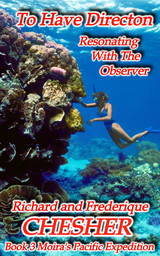Mind is what awareness does to change with change and thus survive.
Mind is perception, memory, response.
I don't mind. Mind your manners. Mind over Matter. Out of your Mind. Speak your Mind. This brings to mind. I'm of two minds. A meeting of minds. Never mind.
Actually, the word "mind" started out as memory (Anglo Saxon mynd, memory) and came from the same Indo-European base word men- to think - that later branched out into man, men, and mental.
Mind is now used to mean the constellation of processes we associate with thought.
We use the word "mind" almost as often and almost as confusing a way as the word "consciousness". Anything that has to do with thinking - anything but the physical body doing it - gets tossed into the Mind basket.
The only problem with mind is matter. We have set it up in opposition to matter. Part of its definition is "contrasted to matter." This opposition is the source of the mind versus brain confusion. We know a great deal about how the brain functions, how our neurophysiology works, but are hung up on the nutty brain paradox. This is such a common question it has distracted us all from the reality of how mind creates what seems (to our sensory and logic systems) to be matter.
Our understanding of mind progresses in parallel with our logic systems, with large numbers of people still locked into the earlier understandings.
-
At first, mind and matter were considered inseparable wholes. Everything living had a mind/soul/spirit/body all in one undifferentiated lump.
-
Eventually we developed separate words to describe our selves and the world around us more clearly. These definitions were of great interest to the ancient Greeks, who were the first to clearly set mind aside from body.
-
The English word Mind came from mens, to think, as evidenced by what people did or did not do.
-
Later this was sharpened to memory, when philosophers realized there must be some kind of storage system for holding mind.
Over the years an array of words were invented to describe various aspects of thinking. Now we recognize mind is a process, that moves from perception, to comparing perceptions to remembered conditions, and then responding.
Responding did not become part of the mind process until this century. Before, response was what you did after you made up your mind. Not until we discovered nerves and determined how they hot wired muscles did we imagine responses were part of mentation.
Until we developed cybernetics, we had no logic system to comprehend the reflexive process of mind.
Mind Feedback
Along came the steam engine. It needed a governor to control its speed. James Watt set his mind to the problem and came up with the basic theme of circular logic systems. Made popular as cybernetics by Norman Weiner in the 1940s, circular logic suggested the process of mind was not linear, but worked in cycles. Moreover, each mental cycle of perception - memory - response changed the system and altered the next cycle through a process called feedback. This process is called tracking. So we added another circuit to mind - the observer created by and creating feedback. All this wasn't easy, mind you. The literature on the subject would fill a medium sized library. Most of it would drive you out of your mind with jargon.
Cognition scientists made a quantum jump in logic, discovering how the process of mind creates the brain, the body, the consciousness, society, buildings, and everything else in the living world. This discovery is what this website is all about.



